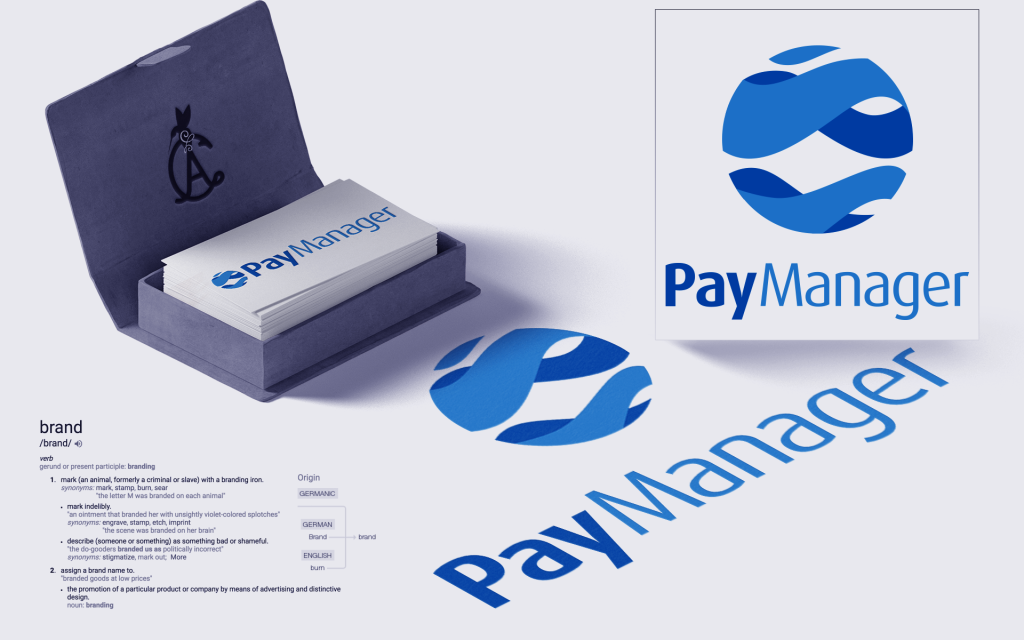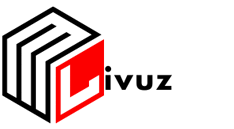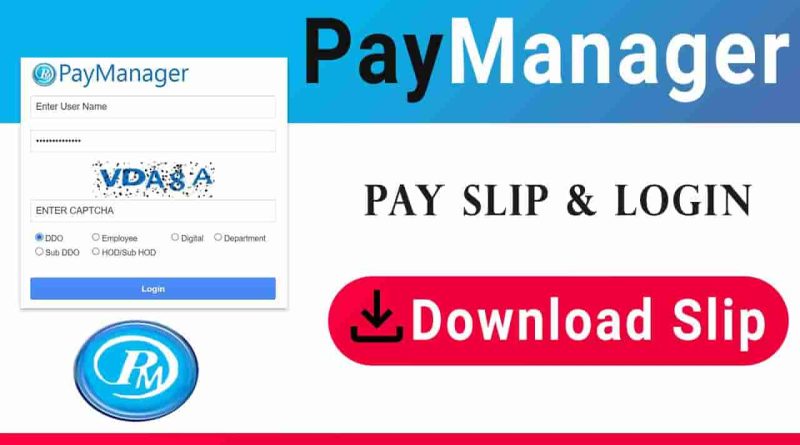Paymanager: A Complete Guide to Salary Bill Preparation and Employee Management
In today’s digital world, managing employee salaries, leave records, deductions, and financial reports can be a complex task for government departments and organizations. To simplify this process, many states in India have implemented Paymanager, an integrated payroll and employee management system.Paymanager is designed to help Drawing and Disbursing Officers (DDOs), government employees, and administrators manage salary bills, DA arrears, bonuses, leave encashments, pensions, and more all in one place. Instead of relying on manual calculations and paperwork, this portal streamlines payroll management with automation, accuracy, and transparency.This article will take you through a complete deep dive into Paymanager, covering its features, modules, benefits, usage process, login procedure, and future scope in 2025 and beyond.
What is Paymanager?
Paymanager is an online salary preparation system primarily designed for government employees and DDOs. It allows the preparation of:
-
Salary bills
-
DA arrear bills
-
Bonus bills
-
Leave encashment bills
-
Retirement benefits
-
Loan deduction statements
It provides a uniform platform that ensures employees receive their salaries on time, and all financial records are maintained digitally. By integrating employee data, financial rules, and government policies, Paymanager minimizes human error and improves accountability.
Key Objectives of Paymanager
-
Automation of Payroll – To generate accurate salary bills without manual effort.
-
Transparency – Employees can view and download their salary slips, deductions, and loan details online.
-
Efficiency – Saves time for both employees and the administration.
-
Compliance – Ensures adherence to government financial rules and updates.
-
Record Keeping – Maintains a digital archive of salary bills and employee records.
Major Features of Paymanager
1. Salary Preparation
-
Automatic calculation of basic pay, DA, HRA, allowances, and deductions.
-
Generation of salary bills for employees under different pay bands.
2. Arrear Bills
-
Supports DA arrears, bonus arrears, and promotion arrears.
-
Ensures employees receive backdated payments in compliance with rules.
3. Loan and Deduction Management
-
Records employee loans (e.g., GPF, HBA, vehicle loans) and deducts EMI automatically from salary.
-
Tracks repayment schedule.
4. Leave Encashment
-
Generates bills for earned leave (EL) and half pay leave (HPL) encashments.
-
Useful during retirement or special cases.
5. Employee Self-Service (ESS)
-
Employees can log in and access their:
-
Salary slips
-
Form 16
-
Annual statements
-
Deduction details
-
6. DDO Role
-
Drawing and Disbursing Officers can:
-
Prepare bills
-
Approve employee records
-
Forward reports to the treasury
-
7. Security
-
Role-based login (Employee, DDO, Treasury).
-
Two-factor authentication for secure access.
Modules of Paymanager
-
Login Module – Secure login for employees, DDOs, and treasury officers.
-
Bill Preparation Module – For preparing salary and arrear bills.
-
Loan & Deduction Module – To manage advances and deductions.
-
ESS (Employee Self Service) – For employees to access their data.
-
Treasury Module – For payment processing and financial monitoring.
-
Admin Module – To configure rules, allowances, and pay structures.

Benefits of Paymanager
For Employees:
-
Easy access to salary slips and financial records.
-
Transparency in deductions and allowances.
-
Quicker loan management and approvals.
-
Paperless process for accessing records anytime.
For DDOs:
-
Simplifies bill preparation and submission.
-
Reduces manual errors in payroll.
-
Saves time with automated calculations.
For Government/Treasury:
-
Standardized payroll system across departments.
-
Easy monitoring and auditing of salary bills.
-
Improved accountability and reduced fraud.
How to Use Paymanager (Step-by-Step Guide)
Step 1: Login
-
Visit the Paymanager portal.
-
Choose DDO/Employee/Treasury login.
-
Enter username, password, and captcha.
Step 2: Employee Dashboard
-
View salary slips, allowances, deductions, and tax details.
-
Update personal details if required.
Step 3: Salary Bill Preparation (for DDOs)
-
Select the bill type (Salary, Arrear, Bonus, Leave).
-
Add employees from the department list.
-
Enter any changes (promotion, increment, loan deductions).
-
Generate and verify bill.
-
Forward to treasury for payment.
Step 4: Employee Self-Service
-
Download payslips and Form 16.
-
Track deductions and loan statements.
-
Submit grievances or corrections if needed.
Challenges in Using Paymanager
-
Technical Glitches – Portal downtime during peak salary bill submission dates.
-
Training Needs – DDOs and employees may require orientation.
-
Dependency on Internet – Limited access in rural areas.
-
Policy Updates – Frequent changes in DA/allowances require system updates.
Future of Paymanager in 2025 and Beyond
The future of Paymanager lies in greater digitization and integration. By 2025, we can expect:
-
AI-based payroll predictions to forecast budget needs.
-
Mobile app support for employees to access slips and records anytime.
-
Blockchain integration for enhanced security and transparency.
-
Unified government HRMS connecting payroll, transfers, promotions, and pensions.
-
Integration with GST and tax portals for seamless compliance.
Case Study: Impact of Paymanager on Government Payroll
Before Paymanager, salary bills were prepared manually, leading to:
-
Errors in DA and allowance calculations.
-
Delays in bill submission and approval.
-
Lack of transparency for employees.
After Paymanager:
-
95% of bills are processed digitally.
-
Salary disbursement is timely and accurate.
-
Employees access payslips and Form 16 online.
-
Government saves cost and resources on payroll management.
Best Practices for Employees and DDOs
For Employees:
-
Regularly download salary slips and verify deductions.
-
Update personal details (bank account, PAN, contact number).
-
Check loan repayment schedules.
For DDOs:
-
Verify employee details before bill preparation.
-
Ensure compliance with the latest government orders.
-
Train staff on using the system effectively.
Conclusion
Paymanager has revolutionized the way salary bills and payroll management are handled in government departments. It brings automation, transparency, and accountability into the financial ecosystem.For employees, it ensures that they get their salary, arrears, and deductions clearly displayed. For DDOs, it makes bill preparation easier and error-free. And for the government, it standardizes payroll across departments, ensuring smooth financial operations.As we move towards Digital India 2025, systems like Paymanager will continue to evolve with AI, automation, and advanced security features, making payroll management seamless and future-ready.
Frequently Asked Questions (FAQ)
Q1. What is Paymanager used for?
Paymanager is an online salary bill preparation and payroll management system for government employees. It helps prepare salary bills, arrear bills, bonus bills, loan deductions, and leave encashment bills.
Q2. Who can use Paymanager?
It is mainly used by Drawing and Disbursing Officers (DDOs), government employees, and treasury officers. Employees can access payslips and financial details, while DDOs can generate and submit salary bills.
Q3. How do employees access their payslips on Paymanager?
Employees can log in to the Employee Self-Service (ESS) portal of Paymanager using their employee ID and password. They can then download payslips, Form 16, and annual statements.
Q4. Can Paymanager handle loan deductions?
Yes, Paymanager automatically deducts EMIs for loans like GPF, HBA, vehicle loans, etc., from employees’ salaries and maintains repayment records.
Q5. Is Paymanager secure?
Yes, Paymanager uses role-based access and security features like passwords and captcha codes. Only authorized employees, DDOs, and treasury officers can log in.
Q6. What are the benefits of Paymanager for employees?
Employees can:
-
View and download salary slips.
-
Check loan and deduction details.
-
Get transparency in salary and allowances.
-
Access records online without visiting offices.
Q7. Does Paymanager support retirement benefits?
Yes, Paymanager can generate bills for leave encashment, pension-related payments, and retirement benefits.
Q8. Can Paymanager be accessed through mobile?
Currently, Paymanager works best through a web portal. However, future updates may include mobile-friendly versions or apps.
Q9. What should I do if I forget my Paymanager password?
Employees can use the “Forgot Password” option on the login page or contact their DDO/admin to reset their credentials.
Q10. How will Paymanager evolve in the future?
By 2025 and beyond, Paymanager is expected to integrate with AI, mobile apps, blockchain, and tax portals, making payroll management faster, smarter, and more secure.




